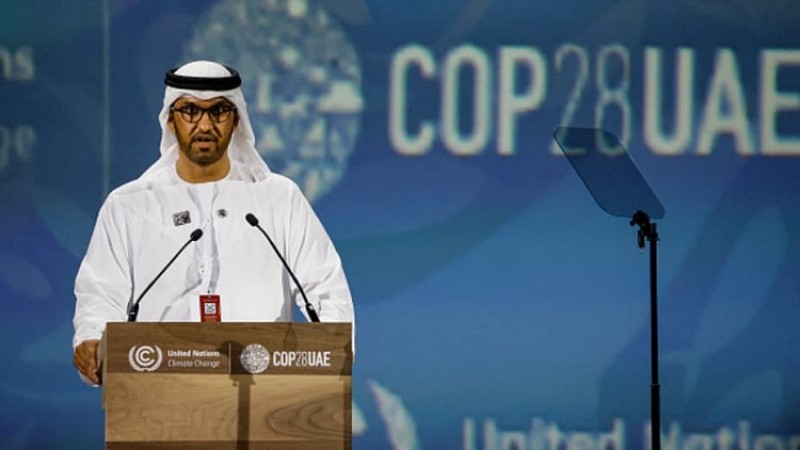
The 28th Conference of Parties (COP28) under the United Nations Framework Convention on Climate Change concluded on a groundbreaking note, achieving the "UAE Consensus," a significant stride in tackling the climate crisis. However, the agreement faces criticism due to perceived gaps between promises and actions, notably concerning financial commitments.
Tackling Fossil Fuels: This conference saw an unprecedented acknowledgment of the need to address fossil fuels, with participating nations agreeing on the necessity of a "fair and just" transition away from them. While the appointment of Sultan Al Jaber, CEO of the Abu Dhabi National Oil Company, as COP28 President sparked concerns about industry influence, the decision to confront fossil fuels received widespread acclaim as a pivotal step forward.
Challenges and Negotiations: Extensive negotiations and several revisions were crucial in finalizing the agreement, leading the conference beyond its scheduled end. The Presidency emphasized the urgency of strong measures to limit global temperature rise to 1.5 degrees Celsius, considering it the guiding principle. Yet, despite these efforts, some developing nations expressed dissatisfaction with the final decision.
Worries of Developing Nations: A number of developing countries, such as Bolivia, Cuba, China, and members of the "G-77 and China" group, voiced discontent with the final text regarding fossil fuels. They argued that it undermined principles of fairness and climate justice. These nations highlighted the absence of definite financial commitments to support their shift from fossil fuels, raising concerns about the global dedication to climate action.
Financial Support and Loss and Damage Fund: Finance emerged as a significant stumbling block at COP28, particularly for developing countries underscoring its pivotal role in climate action. Despite the UN Convention's mandate for developed nations to lead in funding climate efforts, specific financial commitments were noticeably lacking. The introduction of the Loss and Damage Fund did little to alleviate concerns, with developing nations questioning the transparency in monitoring and measuring financial flows.
Unfulfilled Promises and Discrepant Figures: The promise made by developed nations in 2010 to mobilize $100 billion annually by 2020 to aid developing nations was a central point of contention. While leaders from developed countries cited reports suggesting goal attainment, the absence of a transparent mechanism to track financial flows raised doubts about the accuracy of these claims. Conflicting figures from independent reports further clouded the real financial scenario.
Pursuit of a New Financial Target:Discussions for a new financial objective, the New Collective Quantified Goal on Finance (NCQG), were ongoing at COP28. Developing nations advocated for a science-based approach and a robust system to monitor progress, while developed countries pushed for the inclusion of Article 2.1(c) of the Paris Agreement, allowing them to withhold funding for projects they deem insufficiently climate-friendly.
Despite advocating for phasing out fossil fuels, the US retained its position as the leading global producer and consumer of crude oil. A report in September highlighted the US, Australia, Canada, Norway, and the UK as significant contributors to oil and gas exploration. These countries, while endorsing climate objectives, plan to develop more than half of the predicted oil and gas fields by 2050, revealing a conflicting stance.